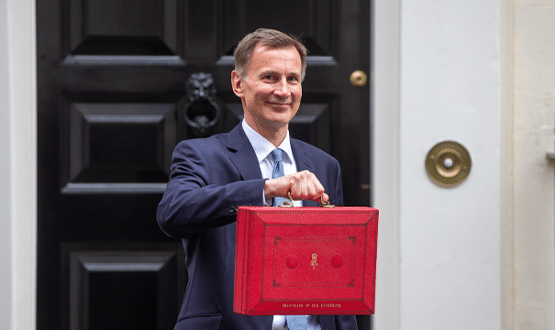Birmingham imparts IT wisdom
- 26 September 2013

University Hospitals Birmingham NHS Foundation Trust will help George Eliot Hospital NHS Trust to improve its informatics service as part of a new government scheme to improve failing hospitals.
Health secretary Jeremy Hunt announced last week that ‘elite hospitals’ would help improve the 11 trusts placed in ‘special measures’ as a result of the Keogh Review which looked into high mortality rates.
Birmingham’s IT director Daniel Ray told EHI that the trust, which had its IT department singled out by Hunt, would work with George Eliot to “spread good practice.”
“We’re going to work with them together on how we can improve the informatics service, which involves the systems deployed, how they use data, improve and increase clinical engagement,” he said.
Birmingham has already started on plans to improve the trust.
“Some of their staff will come and spend some time with us here to see how we’re doing things and have some of our staff going over there,” said Ray.
“It’s an innovative approach, but it makes a lot of sense. George Eliot has got some fundamental issues around infrastructure and the level of efficiencies they can achieve and we hope to support them in terms of that.”
He added that the trust had particular work to do around involving clinicians and making them see the value of IT.
“One of the bigger issues is the clinical engagement and getting them involved in how they can use data to improve on things.
“We are also looking at how they record their clinical information and how it’s processed,” said Ray.
George Eliot is due to take CSCs Lorenzo electronic patient record system under the company’s interim deal with the Department of Health.
Birmingham will also be supporting Burton Hospitals NHS Foundation Trust – due to go-live with Meditech V6.0 – and will begin planning for that shortly.
Under the government’s plan, Birmingham and other ‘high performing’ hospitals will enter into contracts with the NHS Trust Development Authority or Monitor to support the ‘special measures’ trusts.
The elite trusts will also be given access to a special incentive fund through which they could be paid extra if they help produce “real results”.
Improvement plans will be published on NHS Choices and failing trusts will have to update them on a monthly basis.
Hunt said: “In place of the old approach of paying management consultants to analyse the problems, we are giving contracts to the best in the NHS to implement solutions they have tried and tested”.
“With the help of inspiring NHS leaders and their teams from our leading hospitals, I am confident that we can get these hospitals out of special measures and on the road to recovery.”
Other trust partnerships are:
– Salford Royal NHS Foundation Trust helping Buckinghamshire Healthcare NHS Trust
– Sheffield Teaching Hospitals NHS Foundation Trust helping United Lincolnshire Hospitals NHS Trust
– Newcastle-upon-Tyne Hospitals NHS Foundation Trust helping East Lancashire Hospitals NHS Trust
– University Hospital of South Manchester NHS Foundation Trust helping Tameside Hospitals NHS Foundation Trust
– Royal Free London NHS Foundation Trust helping Basildon and Thurrock University Hospitals NHS Foundation Trust
– Northumbria Healthcare NHS Foundation Trust helping North Cumbria University Hospitals NHS Trust
– Barnsley Hospital NHS Foundation Trust helping Sherwood Forest Hospitals NHS Foundation Trust.
– Medway NHS Foundation Trust and Northern Lincolnshire and Goole Hospitals NHS Foundation Trust are also in special measures, but partnering organisations have yet to be confirmed.




